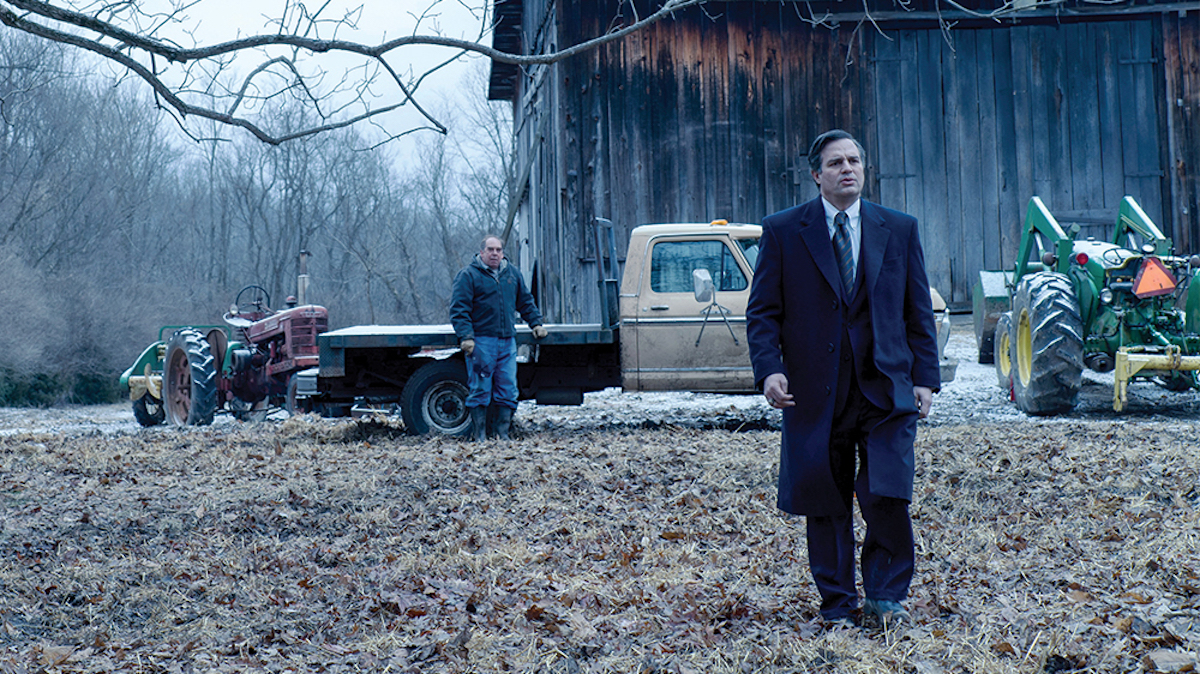When you tune into the Oscars this coming weekend, one thing you will not see is much attention for the 2019 film “Dark Waters.” The film — which stars Mark Ruffalo and Anne Hathaway — is about a lawyer (Ruffalo) who takes on a major corporation (DuPont) over allegations that the company was knowingly letting a toxic chemical poison groundwater and the Ohio River.
It’s the type of story Oscar voters typically love. Whatever the reason is for spurning “Dark Waters,” the film is still an interesting attempt to dramatize an important issue.
Read MoreCancer-Linked Lawsuits
There have been many lawsuits where people claim that commonly used products — such as baby powder and bug spray — contain carcinogens and caused someone’s cancer.
Perhaps the most famous of these suits are the many cases against Monsanto — which is now owned by massive conglomerate Bayer — for its weed-killing product Roundup.
Despite Bayer having to fork over some pretty hefty payouts to people who claim they got cancer because they used Roundup regularly (a school groundkeeper was awarded $80 million by the company, and a couple who said they both developed non-Hodgkin’s lymphoma from the chemical were awarded a whopping 2 billion), at this time, scientists consulted by SurvivorNet still can't say for sure whether glyphosate, the main chemical in the weed killer, is a carcinogen.
There have been studies (such as the one discussed here) linking glyphosate with a slightly higher risk of developing non-Hodgkin’s lymphoma, however, the government has yet to begin enforcing stricter regulations on it. The reason for that being, simply, that it's really difficult for scientists to prove that any chemical is absolutely harmful or carcinogenic.
Researcher say that from an ethical standpoint, it's hard to conduct studies on the harmful effects of a chemical without exposing people to that potentially harmful chemical. And without definitive data, it's really hard to change regulations around consumer goods.
Cancer & the Environment
There is a lot of fear when it comes to cancer risk and everyday items that many of us use. Fran Drescher, “The Nanny” alum and star of the new NBC sitcom “Indebted,” stopped by the SurvivorNet studio not too long ago to discuss some of those environmental risks.
Actress Fran Drescher is a health activist who believes chemicals in our environment play a large role in cancer development. Here, she discusses her theories with Dr. Heather Yeo.
Drescher is a cancer survivor herself. She was diagnosed with uterine cancer in 2000, and has become a dedicated health advocate in the years since. She even founded an organization — Cancer Schmancer — which encourages people to be conscious of the products they’re putting in and around their bodies. Drescher encourages her followers to “detox” their homes of any suspicious chemicals and products.
We had Drescher sit down with oncologist and SurvivorNet medical advisor Dr. Heather Yeo to discuss some of those environmental risks. And Dr. Yeo shared a similar message to the one included above, that it’s very difficult to prove that any one chemical is absolutely linked to cancer in human beings.
Like many, Drescher believes that it’s better to be safe than sorry.
“I’m very much about transforming patients into medical consumers,” the actress told SurvivorNet. Drescher believes that “over 90% of cancer is environmentally stimulated.” There is no hard data from scientifically reliable sources to back up this claim.
Drescher’s more general advice to read labels and make conscious choices about food and exposure to toxins is more widely accepted.
Learn more about SurvivorNet's rigorous medical review process.


